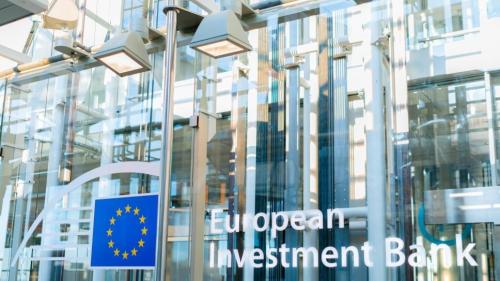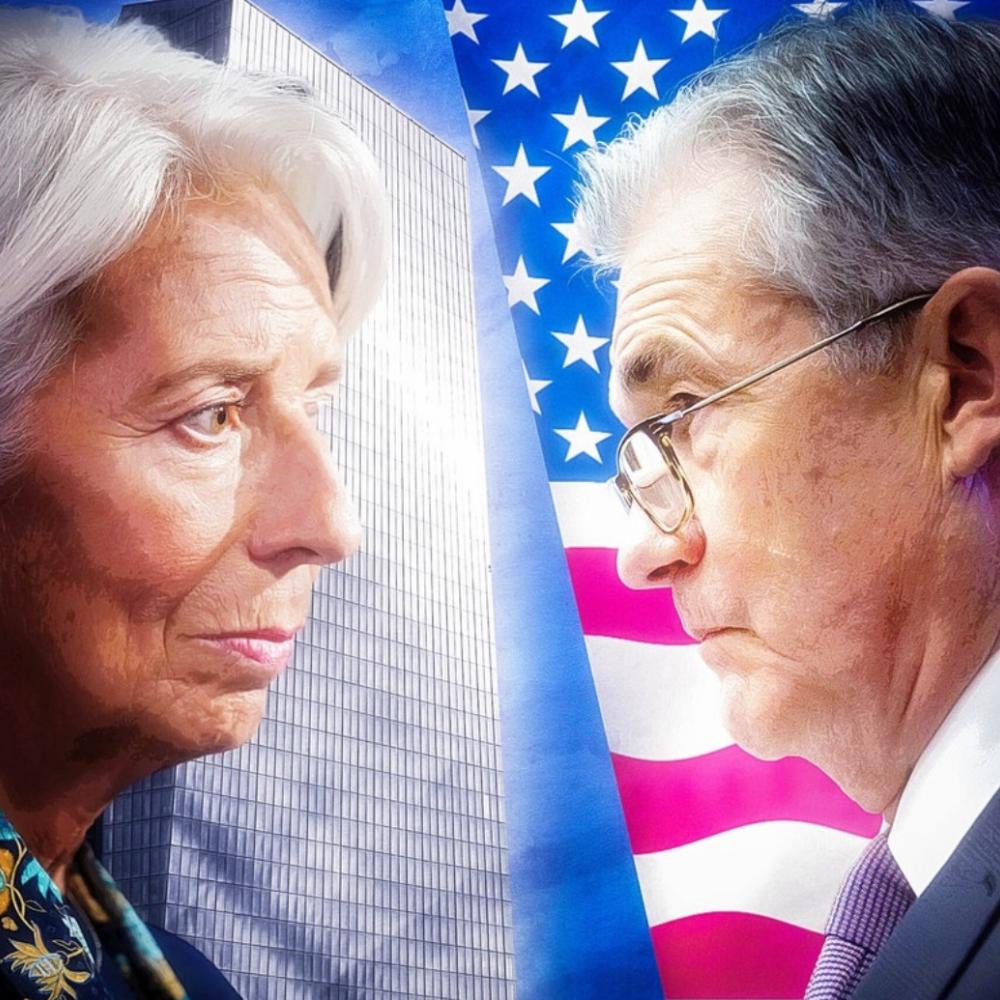
The European Investment Bank (EIB) has been notoriously absent in the financing of defense activities, nuclear energy and mining projects. Given the huge geopolitical and economic challenges the European Union is facing, it would be outrageously absurd to prolong the EIB’s absence in these three sectors.
Shift
Ursula von der Leyen recently set out her stall for a second term as president of the European Commission. She formulated three specific priorities for the eventual renewal of her mandate as head of what is often considered to be the EU’s government: defense, competitiveness and the greening of the economy. This list of priorities signals a most remarkable shift since the Green Deal assumed centerstage in most of her Commission’s initiatives during her first mandate.
The reshuffling of priorities whereby defense and competitiveness now head the “Bucket List” reflects what Bod Dylan more than half a century ago described as “The Times They Are A-Changing”. The war in Ukraine and the hypertension between China and the West have catapulted defense and competitiveness to the top of the agenda for many Western governments. This dramatic shift in priorities is, of course, also highly relevant for the European Investment Bank (EIB), the lending arm of the European Union.
Underestimated
The role the EIB effectively plays, and even more so the role it should and could play, are often hugely underestimated. The EIB is the largest multilateral financial institution in the world. With its balance sheet total of roughly 550 billion euros, it is even one of the largest financial institutions in the world. Since its inception in 1958, the EIB has invested more than 1 000 billion euros, 90% of it within the European Union. The EIB focuses in its lending operations on projects that “cannot be entirely financed by the various means available in the individual Member States”.
Outrageously absurd
With defense and competitiveness now at the top of many political agendas within the EU, the EIB finds itself in an awkward, if not outrageously absurd situation. Let’s first consider defense. The EIB must respect several specific and restrictive conditions for the financing of investments in defense and security. Moreover, financing of investments related to weapons and ammunition is a strict no-go for the EIB. Yet it is untenable in the present circumstances to, on the one hand, repeat endlessly that the EU fully stands behind Ukraine in its fight against the Russian aggression and, on the other hand, to persist with policies that make it impossible for the EU’s major financial institution to contribute to that crucial fight for our values, our democracy and our liberty. Nadia Calvino, the EIB’s new president, is signaling that the EIB should increase its financing in the realm of defense but remains vague on the specifics and seems to intend to continue the exclusion of weapons and ammunition.
No fresh can of subsidies
Europe has neglected for too long its own military and security capabilities. To build up these capabilities we should avoid reopening a fresh can of subsidies, whether national or European. This approach all too often favors those companies and investors with the best lobbying efforts, to the detriment of efficiency and innovation. What we need is a sustained effort by the private sector to invest in military and security hardware and software. The EIB should be able to strengthen financially these private sector investment efforts. Crucial too is the creation by EU countries of sound tax incentives to stimulate private investment efforts in military and security capabilities. Such incentives form the real backbone of President Biden’s successful Inflation Reduction Act (IRA).
Clipped wings
The EIB is also flying with seriously clipped wings when it comes to addressing competitiveness. More specifically with respect to nuclear energy and mining activities, the EIB’s potential contribution is constrained by restrictions imposed by the political authorities (the EIB’s shareholders) on the institution. On nuclear energy Nadia Calvinho has been more outspoken on the EIB’s increased future involvement, for instance with respect to “modular reactors”. It is well known that France strongly insisted that the new EIB president reverse course on nuclear energy.
Increased investment in nuclear energy and technology will substantially reduce the EU’s reliance on imported energy sources such as Russian oil and gas. It will also contribute to greater stability of energy prices within the EU. Both the more assured availability and improved price stability will substantially improve the EU’s competitiveness and attractiveness for strategically important investments. It is, again, absurd that the EIB would be prohibited from contributing to such a development.
The same argument goes for mining activity. In a recent interview Ambroise Fayolle, one of the EIB’s vice-presidents, declared that “mining projects are the most challenging to finance, because of environmental and social issues. This is why we have not financed any mining projects in the last 10 years. However, certain mining projects are eligible for EIB financing”. Well, the moment has come to draw a line under the 10 years of EIB absence in mining activity.
The list of raw materials that will be needed in massive amounts to come a realistic energy and economic transition is long: lithium, graphite, magnesium, silicium, cobalt, copper, nickel, tungsten, etc. The Economist recently calculated that 6 500 billion tons of all kinds of metals will be needed in order to decarbonize by 2050. The EU countries are primarily importers of those needed metals and raw materials, not least from China. Substantial reserves of them are however available in Europe. We need to start developing and mining more sites if we are to enhance the strategic autonomy that so many are talking about today.
It would, again, be wholly absurd if the EIB would remain absent in the financing of the mining efforts, as it has done over the past ten years, when it can support a path to substantially increase the production of the many metals and raw materials that we need to enhance our competitiveness, to reinforce our strategic autonomy and to decarbonize in a realistic way.
Whether in mining projects, supporting energy security and price stability or in promoting European capabilities in defense, the EIB has a clear role to play. As a second Von der Leyen Commission realigns to geopolitical realities, it is time for the EIB to revisit its priorities too.
Usefull links & downloads
You may also be interested in

Fighting disruption axis with attitude
Russia, Iran and above all China form the backbone of an axis bent on destabilizing the Western political and economic order. The Russian and Iranian economies are basket cases and as such incapable of supporting a prolonged war effort. China on the contrary has developed a formidable economic and industrial machine. Nevertheless, China faces huge challenges and massive problems.

Central bankers still must face their past behavior
The case for the September interest rate cut of the Fed was much more clear-cut than the case made by the ECB. Yet both central banks risk re-igniting a debt-fueled financial boom that will further feed financial and economic instability.